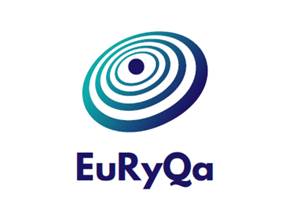|
The article Resource-efficient simulation of noisy quantum circuits and application to network-enabled QRAM optimization, by L. Bugalho, E. Z. Cruzeiro, K. C. Chen, W. Dai, D. Englund, Y. Omar, is available at: arXiv:2210.13494 (2022). Get PDF.
The article Classical Half-Adder using Trapped-ion Quantum Bits: Towards Energy-efficient Computation, by S. Pratapsi, P. H. Huber, P. Barthel, S. Bose, C. Wunderlich, Y. Omar, is available at: arXiv:2210.10470 (2022). Get PDF.
The article A QUBO Formulation for Minimum Loss Network Reconfiguration, by F. Silva, P. Carvalho, L. Ferreira, Y. Omar, has been published in: IEEE Transactions on Power Systems (2022).
The article Bi-frequency illumination: a quantum-enhanced protocol, by M. Casariego, Y. Omar, M. Sanz, has been published in: Advanced Quantum Technologies (2022). Get PDF.
The article Third law of thermodynamics and the scaling of quantum computers, by L. Buffoni, S. Gherardini, E. Z. Cruzeiro, Y. Omar, has been published in: Physical Review Letters 129, 150602 (2022). Get PDF.
The article Open-Air Microwave Entanglement Distribution for Quantum Teleportation, by T. Gonzalez-Raya, M. Casariego, F. Fesquet, M. Renger, V. Salari, M. Möttönen, Y. Omar, F. Deppe, K. G. Fedorov, M. Sanz, has been published in: Physical Review Applied 18, 044002 (2022).
The European Commission has just launched the “European infrastructure for Rydberg Quantum Computing (EuRyQa)” project aimed at establishing Rydberg quantum processors as a leading platform for scalable quantum computing in Europe. Assembling eleven partners from seven countries, EuRyQa is funded under the highly competitive Horizon Europe programme (HORIZON-CL4-2021-DIGITAL-EMERGING-01-30) with a total budget of almost 5 million € over the next three years.
Ultracold trapped atoms have recently emerged as one of the most promising physical platforms for digital quantum computing, having already demonstrated systems with more than 200 qubits (the computational unit of a quantum computer) with strong interactions mediated by their highly excited Rydberg states and a clear path to further scalability to thousands of qubits. To develop the next generation of fully programmable and scalable quantum computing systems based on ultracold Rydberg atoms, EuRyQa will bring together four complementary European Rydberg platforms. In this way, the consortium aims to provide a unique European solution for Rydberg-based quantum computing, together with the first pan-European benchmarking and standardisation of the technology. "We will provide a common quantum computing stack for Rydberg atoms, a federated cloud service, solutions to concrete computational problems, and key technology for fault-tolerant quantum computing with Rydberg qubits,” says Prof. Guido Pupillo from the University of Strasbourg, who coordinates EuRyQa. "The success of EuRyQa will be a game changer for Europe in a global competition for quantum computing." To achieve the project’s aims, EuRyQa unites partners from academia at the forefront of ultracold-atom-based quantum technology with industrial partners providing complementary expertise on quantum hardware, classical electronics, firmware, and software. EuRyQa is coordinated by the University of Strasbourg (France) and other partners include the SME PASQAL (France), the University of Stuttgart, the spin-off Qruise GmbH from the Research Centre Jülich, and the consultancy EURICE GmbH (Germany), the University of Amsterdam and the Technical University of Eindhoven (the Netherlands), the research institute Idryma Technologias Kai Erevnas (Greece), PQI - Associação Portuguese Quantum Institute (Portugal), Università degli Studi di Padova (Italy) and the medium-sized company QM Technologies (Israel). The Project DigiQ - Digitally Enhanced Quantum Technology Master, funded by the Digital Europe Programme of the European Commission, has officially launched and will run until September 2026. This four-year program aims to prepare the workforce and talent for future quantum technologies by introducing a number of educational innovations and a multinational program structure.
Twenty universities from ten European countries, including PQI – Portuguese Quantum Institute, will participate in DigiQ. |
AuthorPhys-Info admin. Categories |


 RSS Feed
RSS Feed